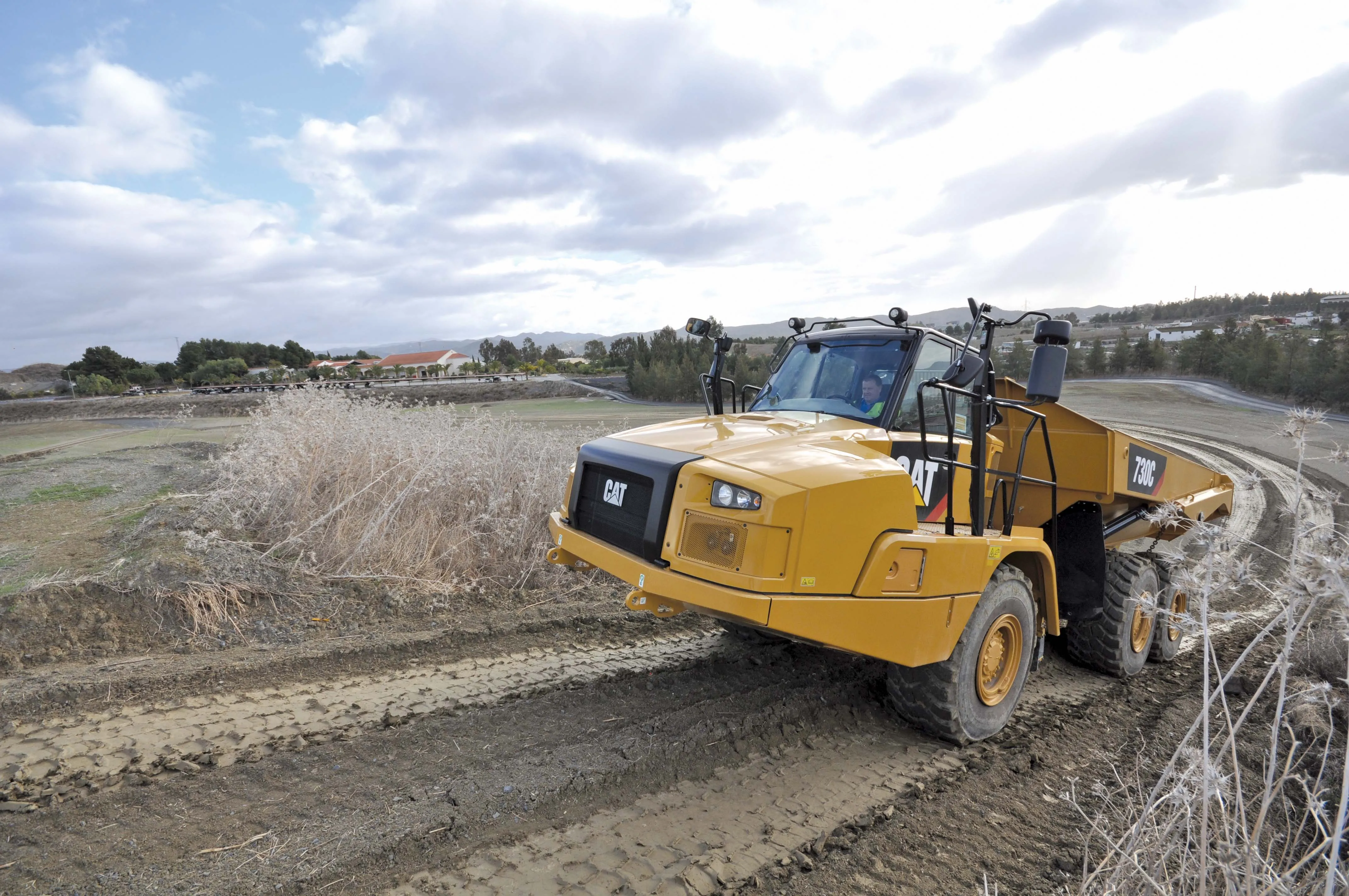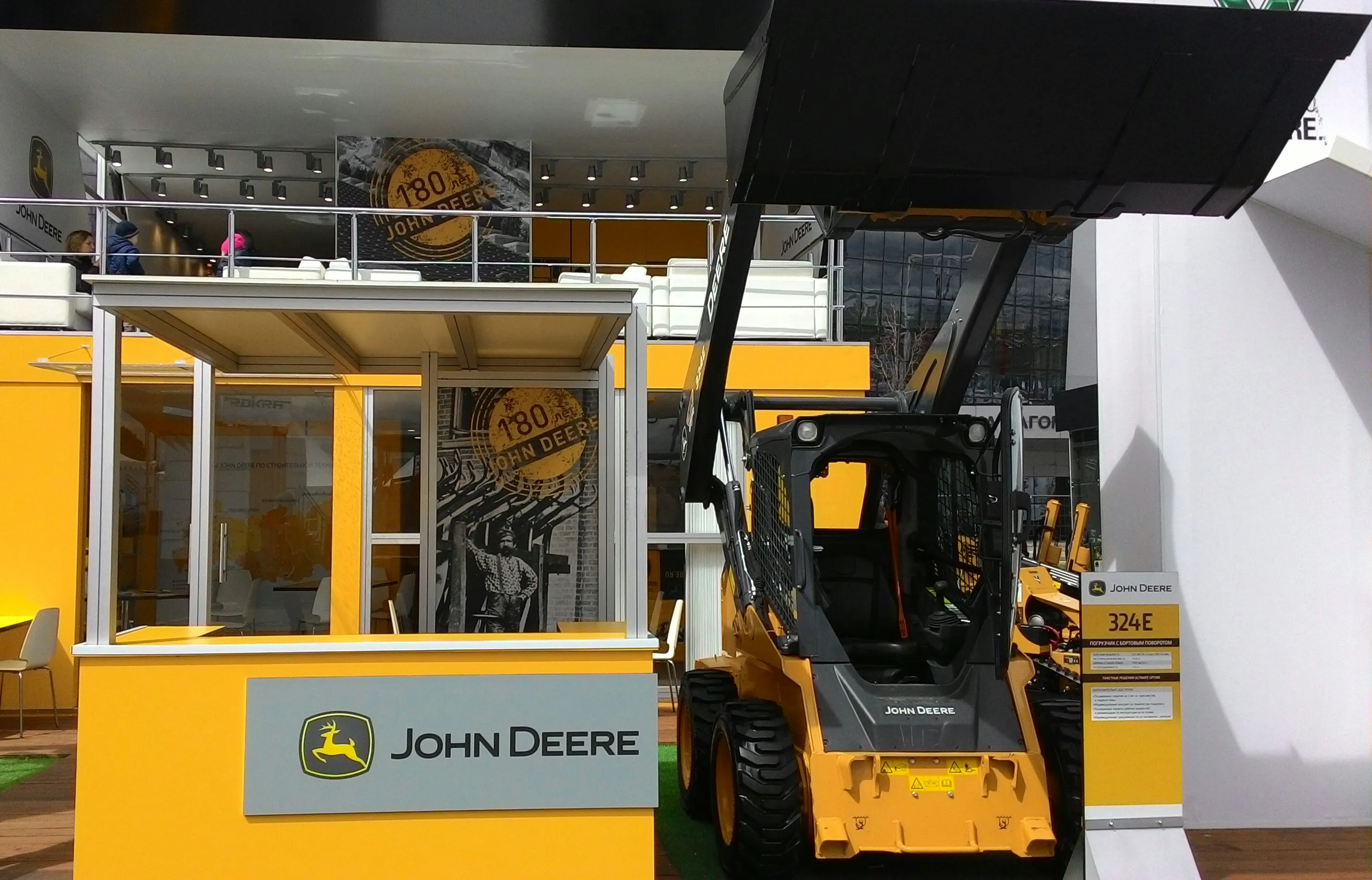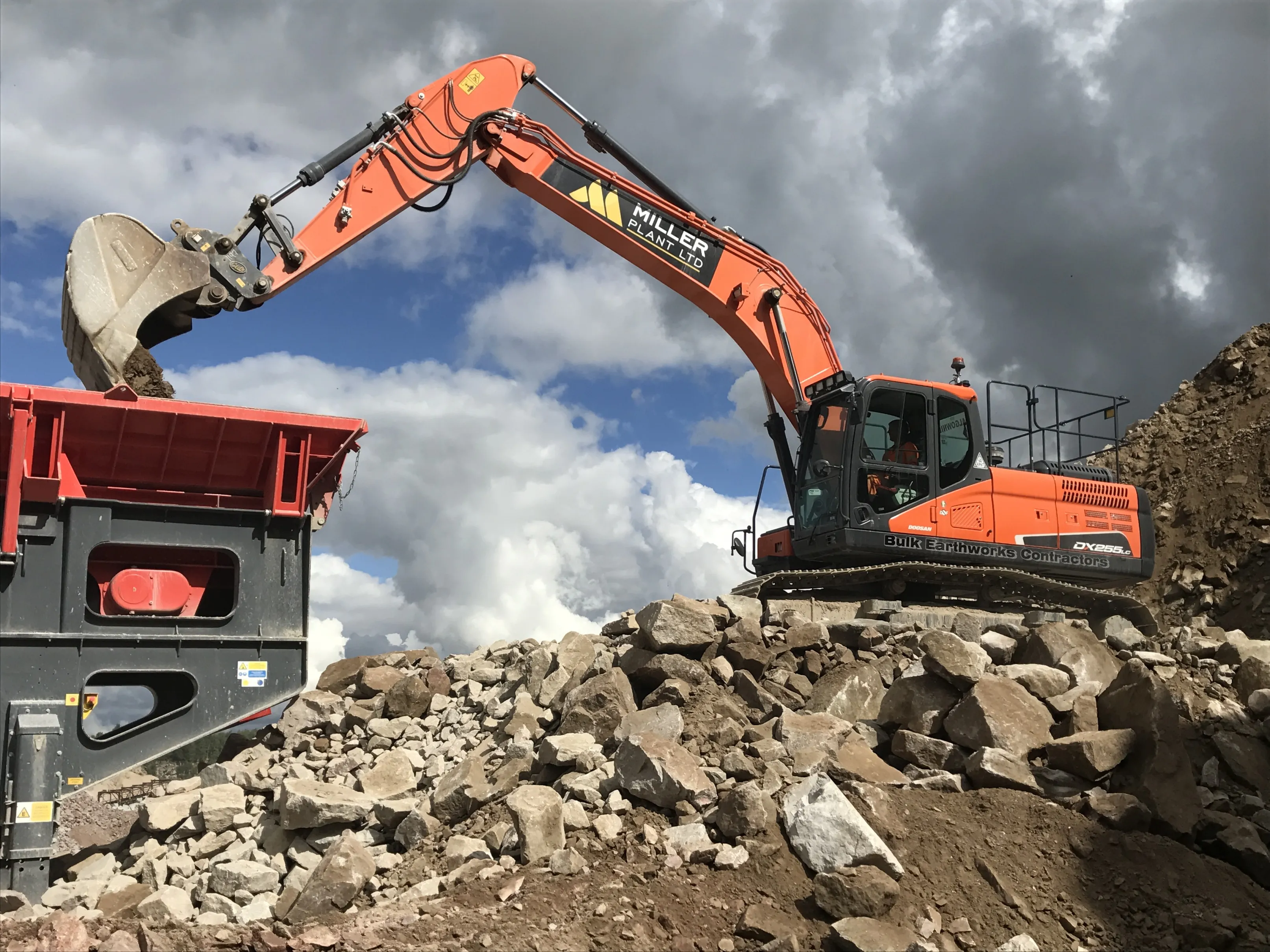Key manufacturers are introducing new excavators and ADTs featuring the latest diesel engine technology, while there are developments too in the grader sector - Mike Woof reports
The start of 2014 was always going to be a key year for the construction equipment sector, given the commencement of the Tier 4 Final/Stage IV emissions regulations for North America and Europe. This phased introduction of ever tougher emissions regulations has been a long process, as well as a very costly one in terms of resear
March 11, 2014
Read time: 4 mins

Key manufacturers are introducing new excavators and ADTs featuring the latest diesel engine technology, while there are developments too in the grader sector - Mike Woof reports
The start of 2014 was always going to be a key year for the construction equipment sector, given the commencement of the Tier 4 Final/Stage IV emissions regulations for North America and Europe. This phased introduction of ever tougher emissions regulations has been a long process, as well as a very costly one in terms of research and development for manufacturers. For the earthmoving equipment sector it has required firms to keep abreast of the latest diesel technology, trying to squeeze the engines and the bulky after-treatment systems under engine covers without spoiling visibility. These highly sophisticated engines also require clean fuels and different maintenance regimes, which has changed many servicing procedures.
ADT advances
In the competitive market for ADTs, the main manufacturers are keen to retain their respective strong positions. South African firm1240 Bell Equipment is now introducing its novel E-series generation of haulers in North America, with these machines retaining features such as the notably high power to weight-ratios. These trucks are also said to set new standards in safety, driver comfort and truck management, with advanced engine and drivetrain characteristics. High performance and fuel efficiency as well as automated machine protection are important features. The machines have been designed to meet the latest emissions requirements and are also reliable, durable and highly productive according to the firm.
Meanwhile178 Caterpillar is fitting its latest ADTS with new engines that deliver more power, as well as advanced transmission controls, improved cabs and better serviceability. The new C Series ADTs include the 725C, 730C, and 730C EJ ejector models, which are said to provide increased productivity, lower operating costs, better availability, long-term durability and high resale values. The smallest of the C series is the 725C, which has a capacity of 23.6tonnes, while the larger 730C and 730C EJ models both have 28tonne payloads. The 725C's CAT C9.3 diesel is rated at 234kW, while the CAT C13 in the larger models delivers 274kW. All three models are offered in Tier 4 Final/Stage IV, Tier 3/Stage IIIA or Tier 2/Stage II emissions variants, depending on the local market requirements and fuel quality available. A diesel particulate filter and selective catalytic reduction system are fitted to deliver exhaust after-treatment for Tier 4-Final/Stage IV models. The company claims significant performance increases across the range and the 725C has a 4% gain in power and a 20% increase in torque, while the 730C and 730C EJ models have nearly 16% more power and a gain in torque of over 30%.
The trucks come with a CAT 6F/1R power-shift transmission that electronically modulates clutch engagement pressures for smoother shifting and also incorporates Caterpillar Advanced Productivity Electronic Control Strategy (APECS) system to boost acceleration. Speed control on downhill grades is optimised for the 730C models by an engine compression brake with 60% more retarding power than earlier models. The 725C has a fluid retarder with four operating modes.
All three C Series models feature wet-disc clutch locks in the axle differentials and the inter-axle differential. Three-point, oil/nitrogen front suspension and walking-beam rear suspension is fitted at the rear while the new dump body uses high-strength wear-resistant steel, while the design offers clean dumping and minimises carry back.
The low, sloping engine covers, central operator seating positions and large glass areas provide good all-round visibility.
Another notable development is that US truck body specialist6510 Philippi-Hagenbuch has now set up a licensing agreement with the Swedish 2694 CeDe Group. This will see CeDe licensing the proven rear eject system developed by Philippi-Hagenbuch for use in off-highway applications for use in Europe, the Middle East, Africa, and Australia. Rear eject bodies manufactured under this licensing agreement by CeDe and shipping into Europe, the Middle East and Africa will be branded as CeDe products, while bodies shipped into Australia will be branded under the PHIL brand name.
CeDe Group is a fast growing engineering company with its head office in Malmö, Sweden. Development and production are strongly linked, as the whole operation is under the same roof. This contributes to dynamic and innovative solutions where ideas are shaped into ready-to-use machines. In the expansive Öresund region of Sweden, CeDe develops and manufactures special applications and complete machines. The majority of its customers are world-leading companies within the mining, construction and offshore industries throughout Europe, the Middle East, Africa, and Australia.
7659 Volvo Construction Equipment is also keen to retain its market leading position in the ADT segment. New engine technology will allow users to meet the latest emissions regulations and the company claims that the performance improvements in its G Series ADTs will help provide key benefits to customers in terms of lower running costs and increased productivity.
The start of 2014 was always going to be a key year for the construction equipment sector, given the commencement of the Tier 4 Final/Stage IV emissions regulations for North America and Europe. This phased introduction of ever tougher emissions regulations has been a long process, as well as a very costly one in terms of research and development for manufacturers. For the earthmoving equipment sector it has required firms to keep abreast of the latest diesel technology, trying to squeeze the engines and the bulky after-treatment systems under engine covers without spoiling visibility. These highly sophisticated engines also require clean fuels and different maintenance regimes, which has changed many servicing procedures.
ADT advances
In the competitive market for ADTs, the main manufacturers are keen to retain their respective strong positions. South African firm
Meanwhile
The trucks come with a CAT 6F/1R power-shift transmission that electronically modulates clutch engagement pressures for smoother shifting and also incorporates Caterpillar Advanced Productivity Electronic Control Strategy (APECS) system to boost acceleration. Speed control on downhill grades is optimised for the 730C models by an engine compression brake with 60% more retarding power than earlier models. The 725C has a fluid retarder with four operating modes.
All three C Series models feature wet-disc clutch locks in the axle differentials and the inter-axle differential. Three-point, oil/nitrogen front suspension and walking-beam rear suspension is fitted at the rear while the new dump body uses high-strength wear-resistant steel, while the design offers clean dumping and minimises carry back.
The low, sloping engine covers, central operator seating positions and large glass areas provide good all-round visibility.
Another notable development is that US truck body specialist
CeDe Group is a fast growing engineering company with its head office in Malmö, Sweden. Development and production are strongly linked, as the whole operation is under the same roof. This contributes to dynamic and innovative solutions where ideas are shaped into ready-to-use machines. In the expansive Öresund region of Sweden, CeDe develops and manufactures special applications and complete machines. The majority of its customers are world-leading companies within the mining, construction and offshore industries throughout Europe, the Middle East, Africa, and Australia.







